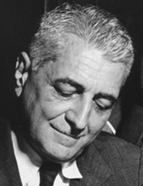

Stuart Schwartz has made a similar analysis which says that, before Casa-grande & senzala, "other authors had written about slavery. Afterwards, many questioned Freyre's interpretations; but, in his work, slavery and the negro became the main subjects, the leitmotifs of Brazilian historiography" ("Gilberto Freyre e a história colonial: uma visão otimista do Brasil" [Gilberto Freyre and colonial history: an optimistic view of Brazil], 2001, p. 110). It is also worth noting that quoting these two North American historians of different generations in particular deliberately serves to highlight the reach and recognition of Freyre's role in a field of study of the greatest importance, one which it is not difficult to understand is not limited by linguistic barriers or geographical borders.
On the other hand, as often happens with great authors, this Pernambuco scholar did not escape interpretative misunderstandings and misconceptions. The main one was certainly that which attributed to him responsibility for the "thesis", according to some, or the "myth", according to others, of "Brazilian racial democracy". As such an association cannot withstand an honest and careful reading of Freyre's oeuvre and has already been discussed and contested by various perceptive critics who have addressed the issue, it is difficult not to agree with Hermano Vianna and David Lehmann, who, in different works, reach the same conclusion: it is a cliché that distorts and falsifies Freyre's thought, often with the conscious intention of discrediting him ("A meta mitológica da democracia racial" [The mythological aim of racial democracy], 2001; "Gilberto Freyre: a reavaliação prossegue" [Gilberto Freyre: The Reassessment Continues], 2008).
One could also add that the cliché ends up reducing his work to the trilogy on the formation of the patriarchal society in Brazil - Casa-grande & senzala, Sobrados e mucambos and the later Ordem e progresso [Order and Progress], published in 1959 and dealing with the social transformations marked by the passage from slavery to free labour, from monarchy to republic, from the 19th century to the 20th - overshadowing other original and pioneering works he wrote such as Nordeste [The Northeast] (1937), presented as "an attempt at an ecological study" on the sugar-cane producing area that he knew so well, or Ingleses no Brasil [The English in Brazil] (1948), an essay on "aspects of British influence on the life, landscape and culture" of the country, or even O escravo nos anúncios de jornais brasileiros do século XIX [The slave in Brazilian newspaper advertisements in the 19th century] (1963), whose title, eloquent in itself, also reveals how he was sensitive to records from the past that could serve as powerful documental sources.
